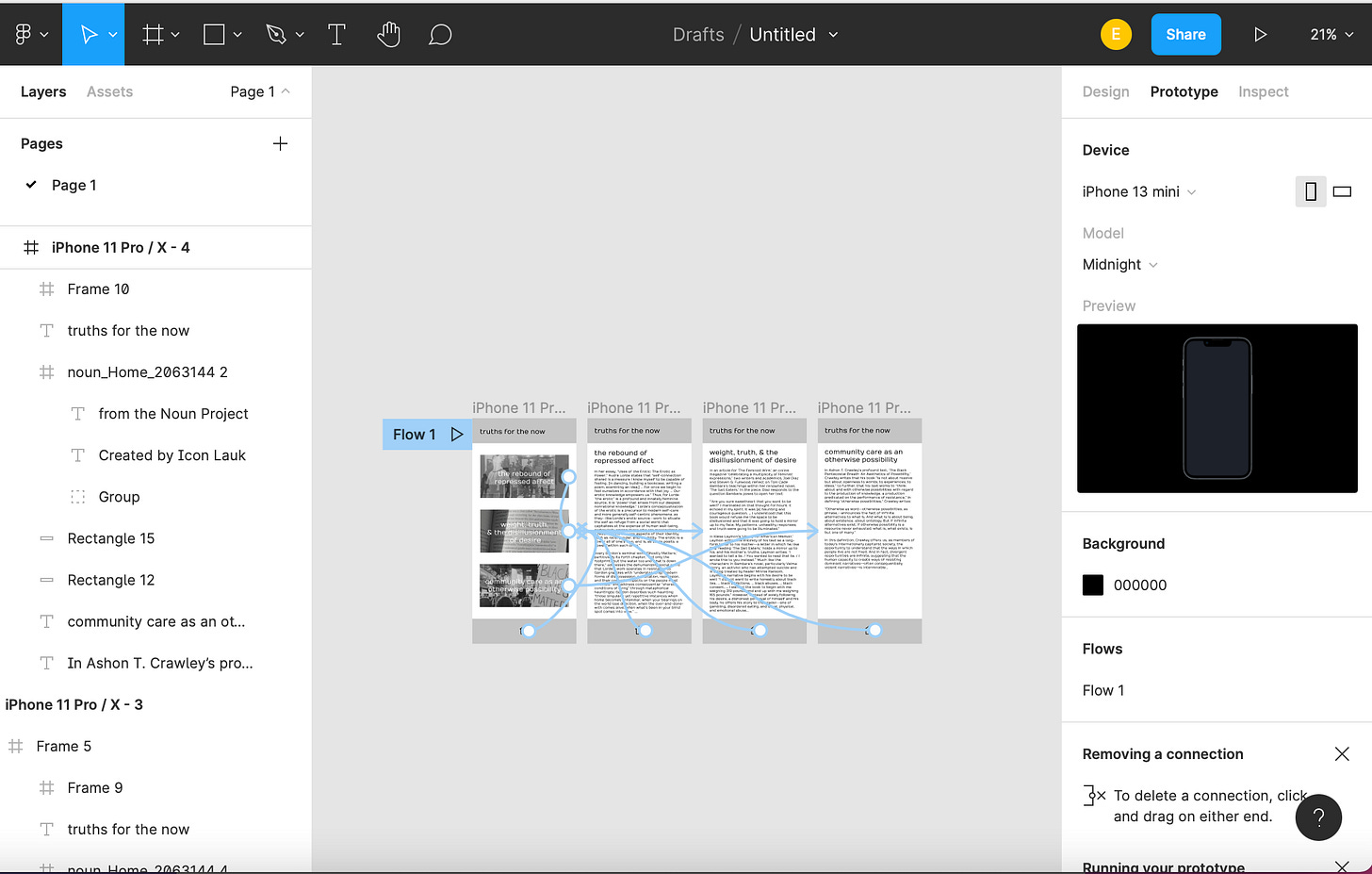Figma prototype of my essay collection is linked: here.
Ideation:
Idea: Grad School Hand Book
Content: The premise of this project would be to equip current graduate students with the information necessary to succeed in grad school. Ex. The unwritten curriculum in grad school is very troubling to navigate for many. There is no guide on how to find and apply to conferences, on how to apply for grant funding, on what to do if your supervisor isn’t working out for you, etc., yet these things are expected of you as a grad student, especially if you want to pursue a career in academia. The handbook would be a way of answering questions regarding topics like these in the hopes of reducing the burden on students, especially first-generation university students. This would challenge traditional publishing about the university, as it is not coming from the university itself.
Medium/format: Digital zine, made using Figma
Question: How can we equip students with tools to have a better experience in graduate school?
Audience: Current Graduate Students (although prospective graduate students would likely appreciate it, too)
Idea: Being More Productive While Working in Digital Media
Content: It’s become broadly known in recent years that while being chronically online is bad for productivity, not to mention an addictive behaviour, in some careers it’s necessary. Especially for young journalists and editors, an online presence is often how you become known. For this project, I would create an anthology in Zine form, taking quotes/paragraphs/short essays from working journalists and editors on how they set boundaries between social media and their otherwise online work.
Medium/format: 5.5 x 8.5 zine, made with InDesign, printed at Parsons. This form would challenge the digital nature of this work by being a print zine, but could easily be made accessible online, too.
Question: How might young media workers become more effective in their use of time? How might they engage in social media in a way that minimizes addictive behaviours with the internet?
Audience: Young editors, journalists, and media workers
Idea: Twitter Dictionary
Content: On Twitter, there are many unwritten words, phrases, and codes. For example, a writer who Tweets in all lowercase is likely to subscribe to a progressive politic. Codes, memes, and words move in and out of the zeitgeist so quickly that I am interested in documenting, and thus archiving, the language, phrases, etc. used online in our current moment. In taking such ways of communicating off of the internet and into a book format, it abstracts the way we usually encounter them, and thus could challenge their standard mode of publication.
Medium/format: Blurb book
Question: What do these words, phrases, and codes mean when taken out of their usual context?
Audience: People who use social media with great frequency

